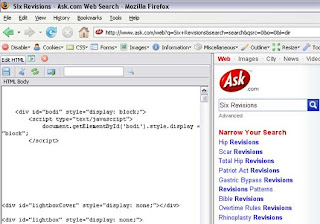Attention all technology companies: you have three months to get your act together. Start pedaling now because in June Apple may steal your business. Why all tech companies? Because Apple's software development kit (SDK) announcement revealed the real scope of the company's ambition for the iPhone. Not since Dr. Bronner's Magic Soap (it's shampoo! Laundry detergent! Mouthwash! Massage oil! Dishwashing liquid!) has one product tried to be so many things to so many people.
The iPhone threatens to replace the BlackBerry for corporate users, the PSP for portable gaming and entertainment lovers, and the SideKick for tween IM freaks. With its accelerometer-friendly games, it's taking on the Nintendo Wii. With its pill-identification application it's even trying to sneak its way into your doctor's white coat pocket. The new iPhone software flexibility will turn the iPhone from an impressive product to a great one. Click Continue to read more about what the iPhone SDK announcement means for you, whoever you are.
Cracking the CrackBerry
When I learned that Apple was probably going to announce push e-mail today for the iPhone, I was a little worried. Push e-mail is what makes the BlackBerry so popular among businesses: it's the "crack" in CrackBerry. And it doesn't just mean that you'll get e-mail immediately without having to hit "reload." The new software also allows your company to delete all of your e-mail at any time. Sure, it's a useful feature in case of theft, and it probably won't affect non-corporate phone owners. But for those users it's a constant reminder of their creepy corporate overlords. I worried that the iPhone would lose its "cool" and become just another tool for corporate drones — the crystal meth to BlackBerry's "crack" image.
I shouldn't have bothered worrying that the iPhone would become just another BlackBerry or Treo, however. The enterprise aspect of the announcement turned out only to be a small part of Apple's master plan. By the time Jobs and Co. finished talking about Spore, Sega and AIM, the corporate mumbo-jumbo was long forgotten. The announcements were so awesome-looking that it's easy to forget that the phone is already an MP3 and video player and Web browser. Also, it's a phone.
Complaints, Complaints
Of course not everybody's going to be perfectly pleased. Apple will not be allowing users to develop and distribute SIM unlock software, so some users will still be taking their phones off the grid, voiding their warranty and enraging AT&T as they go.
And the iPhone's browser still won't be Flash-friendly, leaving users no way to access awesome websites like this one and, well, this one (at least parts of it).
Some will complain that all these new applications will be available only through the iTunes store. I've criticized Apple many times and am frequently called an Apple hater on this site. Not this time. It makes sense that Apple does business through its store. It's one of the company's safeguards against anyone creating damaging apps, and it's not some unexpected surprise. If iTunes really bothers you, you should have a Windows Mobile-based phone. Nobody was expecting Apple to change its entire business model today just because customers had been unlocking its phone.
Finally, there will be some grumbling that consumers won't actually get to use any of the new software until June. They'll only be grumbling until June.
Winners and Losers
I predict that in June we'll see an amazing array of programming for the iPhone, much of it free. I believe these programs will go a long way towards convincing people not to hack their iPhones. Those hacks will become niche operations run by die-hards whom Apple never had a shot at convincing in the first place.
Is Apple attacking too many markets at once? Besides the doctors, lawyers, gamers, casual gamers, movie watchers, businessmen, and teenagers, the company is going to institute parental controls so that you can give an iPhone to your toddler. Can it be successful in all these areas? Is the company, and by extension the iPhone, spreading itself too thin? I don't see it that way: all of the individual programs look too strong. The iPhone is an expensive product, so I don't expect the change to happen all at once. But slowly, steadily, Apple is going to consume the cellphone and PDA markets, even as it begins to gnaw its way into other areas like the portable-gaming sphere. Other tech companies are going to feel it, unless they come up with some pretty amazing products, stat.










